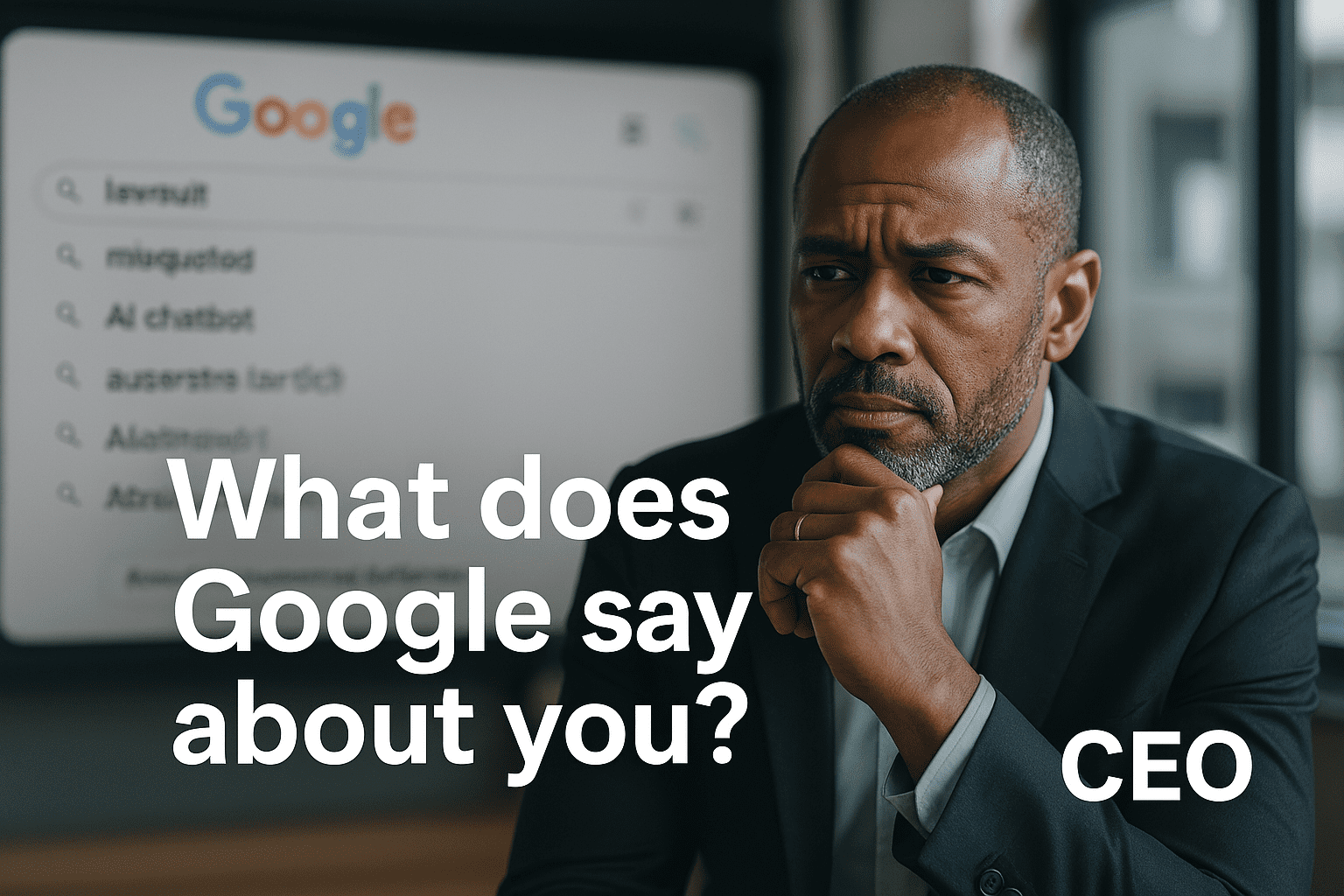Last Updated on January 25, 2025 by Steven W. Giovinco
Summary
- New Frontier: Online Reputation Management (ORM) is now directly linked to Generative AI, as tools like ChatGPT pull data from the web, often amplifying misinformation.
- Audience Focus: Designed for CEOs, business leaders, and organizations managing reputational risks in an AI-driven world.
- Proactive Approach: By combining ORM with AI refinement, organizations can stay ahead of misinformation, protect credibility, and build trust.
- Empowering Innovation: Strengthening web presence and refining AI systems ensures more accurate and reliable outputs while empowering businesses and communities.
- Why It Matters: This innovative strategy bridges ORM with AI solutions to address challenges faster, smarter, and with a forward-looking perspective.
Crucial Link Between Online Reputation Management and Generative AI
Generative AI tools like ChatGPT and Gemini are transforming how information is created and shared, but they also reveal a crucial connection to online reputation management (ORM). Importantly, more people are beginning to turn away Google as the sole research tool and are using ChatGPT and similar AI systems.
A significant source of AI misinformation often stems from incorrect or false information that is already present on the internet. This makes sense—many tools, like ChatGPT, rely on search engines such as Bing and Google for real-time data.
Consequently, these tools can unintentionally amplify false narratives, harm reputations, and disproportionately impact vulnerable communities.
In essence, a new and critical link has emerged between ORM and AI, highlighting the need for proactive strategies to manage misinformation at its source.
How ChatGPT Challenges Google—and Why It Matters to You
ChatGPT is quickly positioning itself as a competitor to Google. Instead of providing a list of links, it delivers direct, conversational answers tailored to users’ questions, making it a time-saving and intuitive alternative (I personally hardly use Google anymore, and I suspect others are doing the same).
This shift raises important questions about how AI impacts everyday life.
For the average user, it’s a reminder to think critically about AI’s growing influence and the importance of ensuring accurate online content.
Who This Is For
This is designed for CEOs, business leaders, and organizations navigating the challenges of AI-driven misinformation and online reputation risks.
Whether managing a brand, safeguarding executive reputations, or addressing public trust, these strategies offer solutions to protect credibility, suppress false narratives, and build a strong, trustworthy digital presence across online searches as well as generative AI platforms.
Key Insights from My Whitepaper on Combating AI Misinformation
My recent 50 page whitepaper, “Managing GenAI LLM Misinformation: Comprehensive Strategies for Building Trust in the AI Era,” delves into this critical issue.
While it awaits academic publication, I’ve summarized key insights into a blog post and presentation to make the ideas accessible.
Why AI-Generated Misinformation Matters
Unlike traditional misinformation, AI-generated falsehoods spread quickly and are harder to detect.
Misleading outputs—ranging from fabricated stories to biased content—erode trust, harm reputations, and perpetuate inequities.
Whether it’s an individual or a business, misinformation can disrupt lives and operations.
A New Approach: Combining ORM with AI Refinement
To combat these challenges, I have developed a cutting-edge approach that blends online reputation management with strategies to refine AI outputs.
By strengthening an online presence with accurate, engaging content and integrating human feedback into AI systems, it’s possible to:
- Suppress false narratives: Push down misinformation in search engines and ChatGPT responses.
- Restore trust: Build a robust digital presence to counteract inaccuracies.
- Empower communities: Equip underrepresented groups to amplify their voices online.
Use ORM to Build Trust Online
The solutions focus on creating a strong, credible online presence to combat misinformation and build trust.
This begins with developing a strategy, identifying false narratives, assessing their impact, and planning targeted content.
Next, building and strengthening platforms such as LinkedIn, Wikipedia, Reddit, ensures accurate, engaging profiles across websites and social media.
Key to this is publishing high-quality content such as blogs, videos, and infographics frequently that directly address inaccuracies and showcase expertise.
Engaging authentically with key stakeholders like influencers and online communities amplifies credibility and visibility.
Finally, continuous monitoring and adaptation ensures ongoing suppression of misinformation and alignment with evolving trends.
AI Solutions to Combat Misinformation
While specific details are in constant flux, and differ for each tool, these steps generally address AI misinformation.
First, identify key inaccuracies by analyzing patterns of false or biased outputs.
Second, curate high-quality datasets to ensure reliable and diverse training data.
Third, leverage human feedback to review and correct AI-generated responses, improving accuracy and inclusivity.
Fourth, monitor and audit AI outputs regularly to track performance and address errors.
Finally, adapt AI systems proactively, staying updated with trends and user needs to maintain relevance and reliability.
These steps create a feedback loop that ensures AI systems produce more accurate and trustworthy content.
Explore the Full Insights
To dive deeper into these solutions, check out:
- Presentation: A quick overview of actionable ORM strategies.
- Blog Post: A detailed exploration of the intersection of AI and reputation management.
Bottom Line
Online reputation management is important anytime, but as people shift to using AI tools, it becomes ever more crucial.
Combating misinformation requires a proactive approach that blends ORM with AI solutions. By strengthening online presence and refining AI systems to ensure accurate and inclusive outputs, organizations can suppress false narratives and rebuild trust.
Together, these strategies empower individuals and businesses to navigate the challenges of the AI era while fostering a more responsible and equitable digital landscape.
Contact/Questions
If you’re grappling with online reputation challenges—or are curious about how AI and ORM are reshaping the digital landscape—let’s connect.
I, Steven W. Giovinco and Recover Reputation would love to share more insights and discuss how these strategies could address your specific needs.



